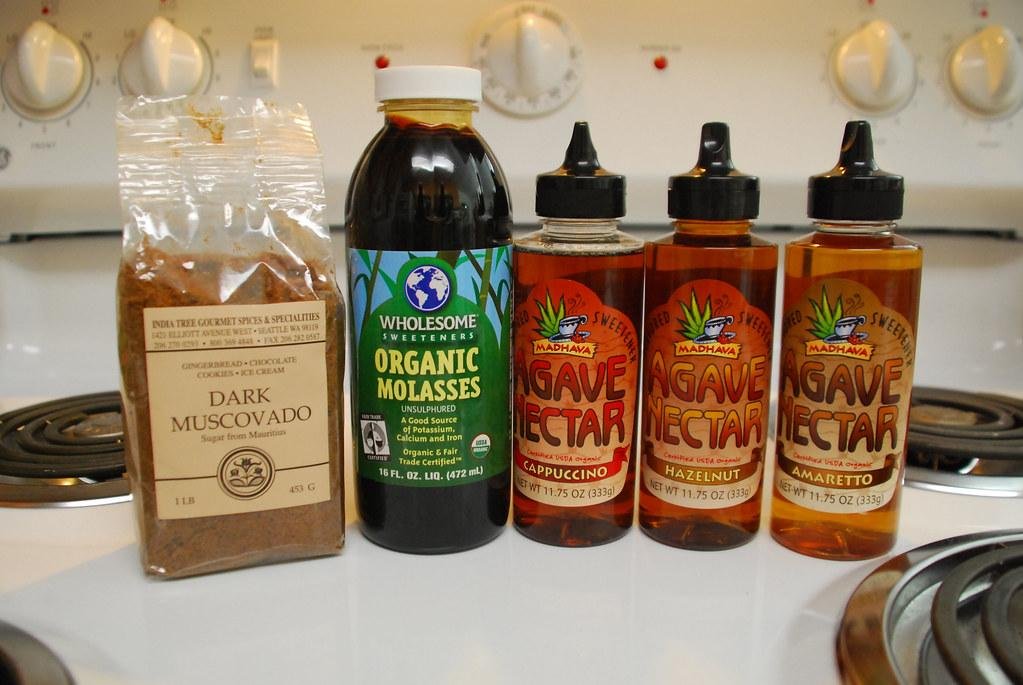Sweeteners: Navigating the World of Sugar Alternatives
March 13, 2024 | by zhealtheist.com


## H1: Sweeteners: Navigating the World of Sugar Alternatives
Sweeteners have been a dietary staple for decades, providing us with a guilt-free way to enjoy our favorite desserts and drinks. As more people strive to reduce their sugar intake for health reasons, the demand for sugar alternatives continues to rise. But when faced with a host of sweetening choices, it can be challenging to know which to select. In this comprehensive guide, we will explore various types of sweeteners, their uses, benefits and the potential risks associated with them. So buckle up – we’re about to alternate your sugar perception.
## H2: Understanding Sweeteners
What are sweeteners? Sweeteners are food additives that provide a sweet taste similar to that of sugar while containing significantly less food energy. They can broadly be classed as natural or artificial sweeteners.
## H2: Natural vs. Artificial Sweeteners
Natural sweeteners include honey, maple syrup, and stevia, derived directly from plants. Artificial sweeteners, on the other hand, are synthetic sugar substitutes, like aspartame and saccharin, often found in ‘diet’ or ‘sugar-free’ products.
Quick Tip: While the term “natural” can seem more appealing, it doesn’t necessarily mean these sweeteners are healthier choices. Similarly, artificial doesn’t equate to bad. It’s all about moderation and understanding your own body’s response to these sweeteners.
## H2: Popular Sweeteners and their Uses
1. Stevia: A zero-calorie sweetener extracted from the leaves of the Stevia rebaudiana plant. It’s up to 200 times sweeter than sugar and commonly used in beverages, yogurt, and baked goods.
2. Aspartame: Used in thousands of food products worldwide, aspartame is an artificial sweetener known for its intense sweetness, with a potency approximately 200 times that of sugar. It’s found in diet drinks, sugar-free gum, and low calorie desserts.
3. Honey: Famed for its natural origins, honey is a sweet liquid made by bees and is great in teas, on toast, or as part of a marinade.
## H2: Benefits of Sugar Alternatives
Some of the benefits of using sugar alternatives include:
* Provide an option for those with diabetes to enjoy sweet foods without spiking their blood sugar levels.
* Can contribute to weight management as they generally contain fewer calories than sugar.
* Great for dental health as they don’t contribute to tooth decay or cavities.
## H2: Potential Risks
However, it’s important to note that excessive use of sweeteners might entail potential risks. Some studies suggest certain artificial sweeteners may have possible health concerns such as digestive issues, increased risk of heart disease, and in some cases, cancer. When it comes to natural sweeteners, bear in mind they’re still forms of sugar and should be used in moderation.
## H2: Making the Right Choice
Choosing the right sweetener ultimately depends on your dietary needs, taste preferences, and health goals. Always remember to read labels and understand what you’re consuming.
## H1: Conclusion
Navigating the world of sweeteners doesn’t have to be complex; it’s about making informed choices that work for you. While replacing sugar with sweeteners can be beneficial, remember to consume them in moderation. Here’s to healthy and conscious eating!
Remember: Moderation is key. Different sweeteners suit different needs. It’s not one-size-fits-all.
RELATED POSTS
View all



